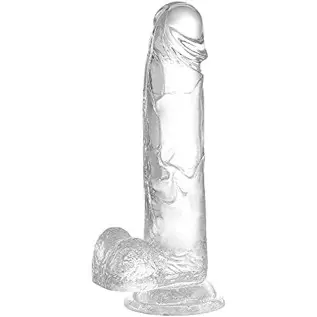What are the symptoms of penile cancer? How to prevent it?
Penile cancer is a very serious malignant tumor disease. The mortality rate of this disease is very high. The disease must be discovered and treated as soon as it occurs. Therefore, experts suggest that people should understand the symptoms of penile cancer in order to facilitate the disease. The disease should be detected promptly and treated promptly.
What are the symptoms of penile cancer?
1. Early stage cancer results in thickening of the epithelium of the glans penis or foreskin. Most patients present with papules, ulcers, warts or cauliflower-like plaques on the head of the penis, followed by erosion, hard and uneven edges, conscious stinging or burning pain, and purulent foul-smelling secretions. When there is phimosis or the foreskin cannot be turned up, you can touch it carefully through the foreskin and you will feel a lump or nodule and local tenderness. Early lesions are often visible after circumcision.
2. If early-stage lesions are not properly treated, the disease will gradually develop, and the verrucous nodules or ulcers will expand and deepen, and the foreskin will become tense, thin, and shiny. The edge of the mass or ulcer can expose the outer opening of the foreskin. Then the cancer pierces the foreskin, causing cauliflower-shaped lumps or cancerous ulcers, accompanied by foul-smelling discharge. As advanced tumors continue to develop, they can invade the entire penis and corpus cavernosum, and even infiltrate the scrotum, scrotal contents, and prepubic tissue. The distal part of the penis may become necrotic and fall off due to poor blood supply, causing unbearable local pain. After infiltration into the corpus cavernosum of the urethra, pain, difficulty in urinating, and even urinary retention or urinary fistula may occur.
3. Penis enlargement: This is the result of the massive proliferation and proliferation of tumor cells. The shape of the enlargement is often uneven and sometimes very irregular. The penis on the side with the tumor is particularly obvious due to the protruding enlargement. The initial manifestations are papules, wart-like neoplasms or induration on the glans penis, especially along the coronal sulcus area. General treatment cannot prevent its growth and expansion until ulcers and ulcers continue to expand. This is one of the main manifestations of penile cancer.
4. Hard penis: The cancerous penis is hard when touched, like a stone, but there is no pain when pressed. This is also the main manifestation of penile cancer.
5. Heaviness of the penis: Penile cancer is formed by the massive growth of tumor cells, so it is a substantial mass. When it grows to a certain extent, the weight of the cancerous penis will suddenly increase. At this time, the patient will feel that the penis is heavy and falling. It even affects walking.
What are some ways to prevent it?
1. HPV vaccine
So far, there are two vaccines to prevent HPV registered by the European Medicines Evaluation Agency (EMEA) and the US FDA. The study found that among women who tested negative for HPV, the above two vaccines were highly effective in preventing long-term HPV infection or incidental high-grade cervical lesions. After clinical trials of men receiving the HPV vaccine, it was proven that the vaccine is safe and effective, so it has been marketed in some countries. It is speculated that the HPV vaccine may also prevent HPV-positive penile cancer, but the real effect needs to be verified by future clinical trials.
2. Use condoms
Although there is no 100% prevention effect, the use of condoms is extremely effective in preventing and treating sexually transmitted diseases. A related clinical study is ongoing. In this trial, sexual partners are randomly given condoms. It is found that the healing time of HPV-related genital lesions in the condom-using group is significantly shortened.
3. Quit smoking
Although the specific role of smoking in the development of penile cancer is unclear, there is no doubt that smoking is one of the risk factors for penile cancer. Smokers are much more likely to develop penile cancer than non-smokers, so actively carrying out smoking cessation campaigns is one of the measures to prevent penile cancer.
4. Others
Other preventive measures include preventing phimosis, treating chronic inflammatory diseases of the genitals, and improving hygiene.
How to treat it?
1. Drug treatment. Drug therapy is one of the methods for treating penile cancer. Traditional Chinese medicine mainly uses Chinese herbal medicine with yew as the main component. Experts point out that yew is an endangered anti-cancer plant in the world. It is currently the only Chinese herbal medicine in the world that can treat cancer. It is also the only hope and real life-saving straw for cancer patients. It should be noted that it is highly toxic and must be compatible with Chinese medicinal materials to resolve its toxicity in order to be safe and effective. What are the treatments for penile cancer? Currently, anti-cancer drugs used by Western medicine for penile cancer include fluorouracil, cyclophosphamide, etc., but the effects are not significant.
2. Radiotherapy. Penile cancer can also be treated with radiation therapy. However, there is controversy about the method of radiotherapy for penile cancer, and you need to pay attention to the choice. Experts say that early-stage penile cancer can be treated with bleomycin and X-ray irradiation, with good results.
3. Surgical treatment. What are the treatments for penile cancer? Surgery is the mainstay of treatment for penile cancer. Experts pointed out that if the patient's lesions are limited to the foreskin, circumcision can be performed; if the tumor invades the glans penis, partial penectomy can also be performed. If the tumor is relatively large and the residual penile overhang is extremely short and it is impossible to urinate while standing, total penectomy and urethrovaginostomy can be used for treatment.
















